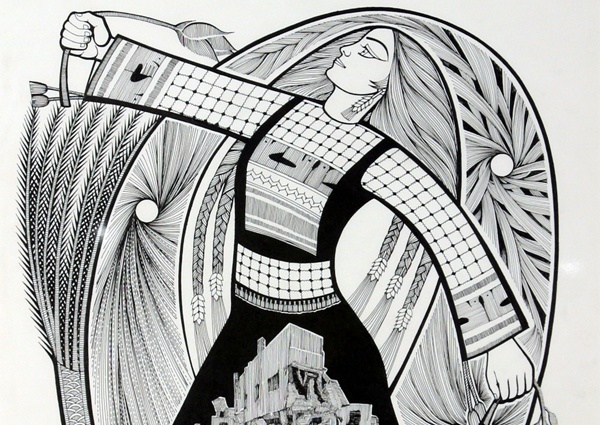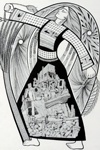On the wounded night
my father gave the neighbors
a wine feast and a variety of pastries
while my mother
unraveled both her eyes to the ravens.
And on tiptoe the neighborhood wives
come and go, lighting candles
to Rabbi Meir Baal HaNes
and to Rabbi Shimon bar-Yochai.
And I
feverish
toss and turn all night
soliciting my mother’s eyes
to calm my father.
And the women continue
to come and go
to revive me
with nard and turmeric
until morning arrives
sealing the time
of darkness.
Translator’s Notes: Rabbi Meir Baal HaNes (Rabbi Meir the miracle maker) was a Jewish sage, frequently mentioned in the Mishna. Rabbi Shimon bar-Yochai was the traditional author of the kabalistic work the Zohar.
Erez Bitton was born in Oran, Algeria, in 1942, and emigrated to Israel in 1948. At the age of ten, he was blinded by a stray bomb he found near his home in Lod. He studied at the Hebrew University of Jerusalem and received an MA in psychology from Bar Ilan University. His first two books, A Moroccan Gift (1976) and The Book of Na’na (1979), established him as the founding father of Sephardic poetry in Israel. He is the recipient of several literary awards, including the 2014 Yehuda Amichai Poetry Prize. His two subsequent collections are Timbisert, a Moroccan Bird (2009) and Blindfolded Landscapes (2013).
Tsipi Keller was born in Prague, raised in Israel, and has been living in the US since 1974. The author of nine books, she is the recipient of several literary awards, including National Endowment for the Arts Translation Fellowships and New York Foundation for the Arts fiction grants. Her translation collections include Poets on the Edge: An Anthology of Contemporary Hebrew Poetry (SUNY Press) and The Hymns of Job and Other Poems (Lannan Translation Selection), a Lannan Translation Selection (BOA Editions). Her selected volume of Raquel Chalfi’s poems, Reality Crumbs, will be published in 2015 (SUNY Press).


